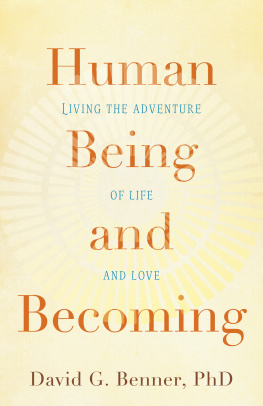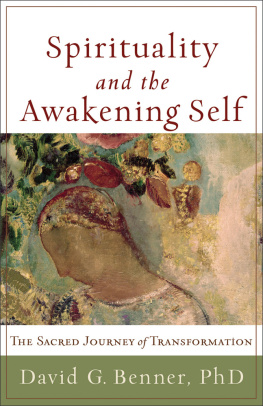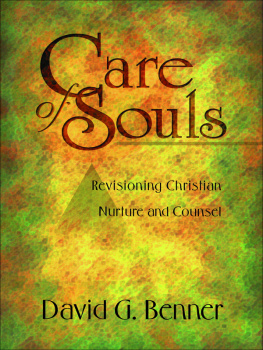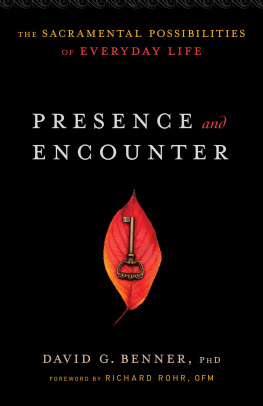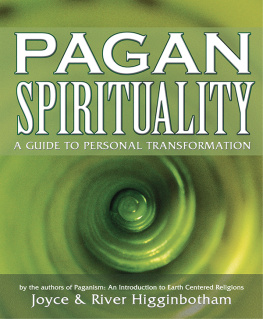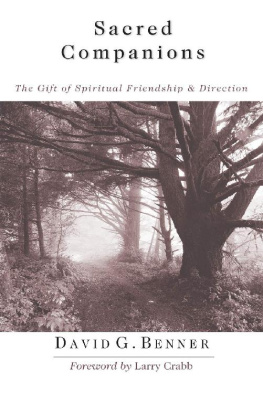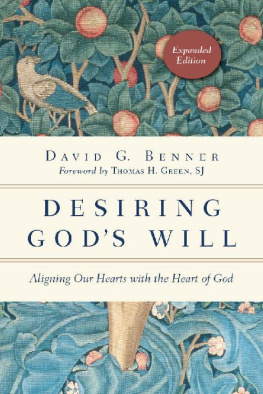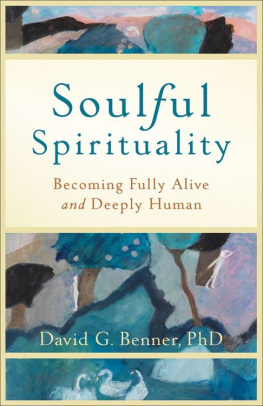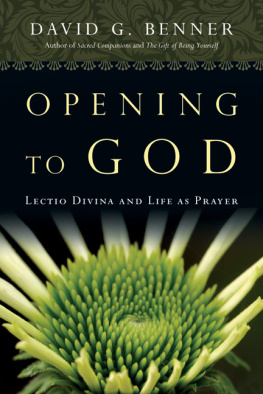. Pierre Teilhard de Chardin was a French philosopher and Jesuit priest who trained as a paleontologist and geologist and subsequently took part in the discovery of Peking Man. I wont often be referring directly to his work, but his writing, particularly The Phenomenon of Man (New York: Harper & Row, 1961), has been a major influence on my thinking about human being and becoming.
. I will have more to say about the perennial wisdom tradition as I proceed, but at this point let me simply describe it as a summary of the timeless truths about the nature of the self, the world, ultimate reality, and God that appear in the worlds major religious traditions. In his book The Perennial Philosophy: An Interpretation of the Great Mystics, East and West (New York: Harper Perennial Modern Classics, 2009) , Aldous Huxley describes it as, The metaphysic that recognizes a divine Reality substantial to the world of things and lives and minds; the psychology that finds in the soul something similar to, or even identical with, divine Reality, and the ethic that places mans final end in the knowledge of the immanent and transcendent Ground of all being (vii). For a fine series of recent articles on the perennial wisdom tradition, including a helpful discussion of its relevance to Christianity, see The Perennial Tradition, Oneing 1, no. 1 (Spring 2013).
. See, e.g., Brian Thomas Swimme, The Hidden Heart of the Cosmos (Maryknoll, NY: Orbis, 1996); Ilia Delio, The Wholeness of Being (Maryknoll, NY: Orbis, 2013).
. Using more traditional language, St. Irenaeus spoke not of Being but of God. In what follows I will use this same traditional language from time to time but will often refer to the one who in the Hebrew Bible self-identified as I AM (Exod. 3:14) by terms such as Being, the Ground of Being, or other capitalized words.
Chapter 1 Being Human
. The idea of loving others as our self is found in almost identical form in the sacred texts of Hinduism, Jainism, Buddhism, Zoroastrianism, Judiasm, Christianity, Islam, and Sikhism. For details, see Mary Pat Fisher, Religion in the Twenty- First Century (London: Routledge, 1999), 104.
. The wisdom tradition is best understood as a living tradition, not a compendium of wise words. The life of the tradition is wisdom teachers who do not simply communicate propositions but also draw on the tradition to encourage and facilitate personal transformation. Cynthia Bourgeault, a widely recognized wisdom teacher, notes that the hallmark of their teaching is their use of pithy sayings, puzzles, and parables rather than prophetic pronouncements or divine decree. They spoke to people in the language that the people spoke, the language of story rather than law (Bourgeault, The Wisdom Jesus: Transforming Heart and Mind A New Perspective on Christ and His Message [Boston: Shambhala, 2008], 23). Bourgeault notes that when this teaching method is combined with the content and focus of Jesuss teaching, it is clear that he was first and foremost a wisdom teacher belonging to the Jewish branch of the Near Eastern wisdom tradition known as mashal .
. First articulated by the ancient Greek philosophers (primarily Parmenides, Plato, and Aristotle), the understanding of these three transcendentals strongly influenced Augustine, Aquinas, and other Christian theologians who grounded being in the nature of God. As God created out of the Divine self, being was then shared with humans and everything else that existed, making clear the fundamental connection between all that had being with Being itself.
. Genesis 1:1025.
. Richard Rohr, Yes, and ... (Cincinnati: Franciscan Media, 2013), 384.
. Reported by President Barack Obama in his words of public condolence on the death of Nelson Mandela, December 5, 2013.
. Leonard Cohen, Anthem, in The Future , Columbia Records, 1992, www.azlyrics.com/lyrics/leonardcohen/anthem.html.
. Although contemporary authors often capitalize the first letter of spirit when they wish to refer to God (something I myself have often done), I will not be doing that in this book because it introduces an unhelpful distinction between the human and divine spirit. In the words of Cynthia Bourgeault in Centering Prayer and Inner Awakening (Cambridge, MA: Cowley, 2004), 13, As we move toward center, our own being and the divine being become more and more mysteriously interwoven. Spirit, I believe, is the element that does the interweaving.

